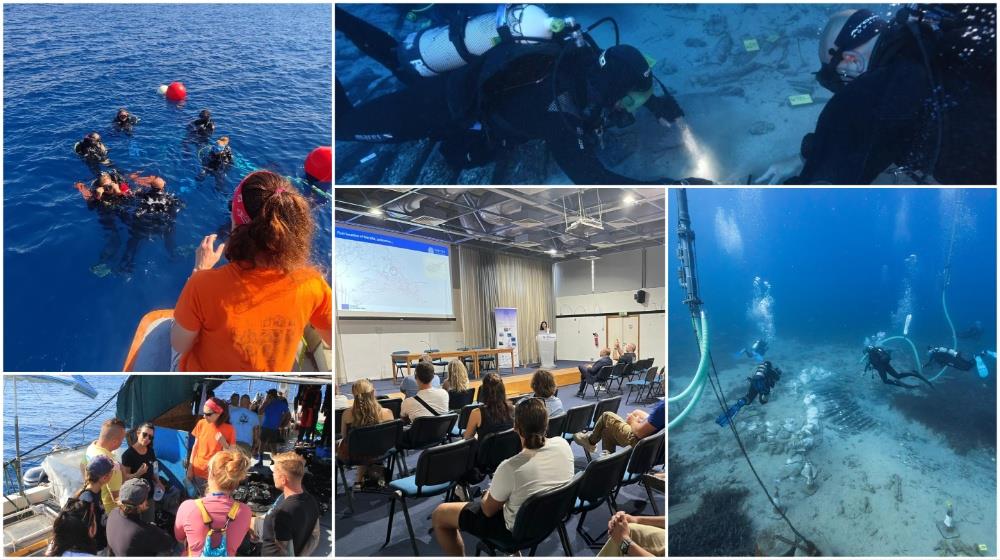For the first time ever, guided visits took place last week at Nissia Shipwreck, where representatives from diving centres of the area interested to learn more about the shipwreck and its history were welcomed at Living Labs organised in the framework of the project.
Guests had the unique opportunity to learn more about the procedures undertaken in an underwater excavation and also visit the site during its excavation that was directed by the University of Cyprus.
In a LinkedIn post, the Cyprus Marine and Maritime Institute (CMMI) said that the experience sparked discussions on the protection and preservation of underwater cultural heritage, preparing the ground for further dialogue with the local diving community in the future.
A shipwreck of the ottoman period
According to the University of Cyprus’ Maritime Archaeological Research Laboratory, Nissia Shipwreck is a shipwreck of the ottoman period, located in the Nissia area, at the Famagusta cape, 28 metres below sea level. It is the only known shipwreck of that age in Cyprus.
The shipwreck was known among divers since 1980s, when diving activity started to develop in the area. However, the official report at the DoA was made in 1992. Since then, several attempts have been made to survey the site, with no follow up: In 1994, a team from the Ephorate of Underwater Antiquities of Greece visited the site, while in 2004 the private company Aquatec, in collaboration with the German Institution DEGUWA made attempts to survey and protect the site. Gradually, during these years, knowledge of the site was widespread among the diving community. Due to its location, at a depth easily accessible to divers, and the 'friendly' waters of the area, it was transformed into an uncontrolled recreation spot. This resulted in its destruction and looting, and the subsequent destruction of valuable archaeological evidence.
THETIDA project’s aims and objectives
The THETIDA project aims at safeguarding and protecting Europe’s coastal and underwater cultural heritage from the effects of climate change and natural hazards. The project approaches safeguarding and protecting Europe’s coastal and underwater cultural heritage from the effects of climate change and natural hazards in a holistic manner that includes risk management, protection and preparedness, as complementary strategies to prevent damages to cultural heritage sites, identify and ward off additional threats and promote policy tools for climate neutrality and economic resilience in coastal areas.
THETIDA is coordinated by the Institute of Communication and Computer Systems (ICCS), Greece.









